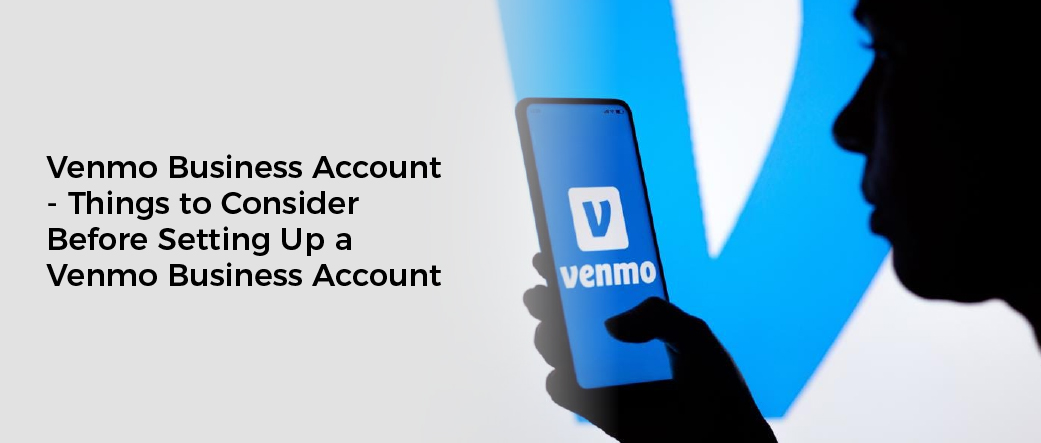Venmo is a peer-to-peer money transfer app that has recently launched features to support business owners. These include a venmo business account and a new Pay with Venmo experience.
These features can be helpful for businesses that are looking for an inexpensive way to accept contactless payments from customers. For example, Venmo’s a QR code allows customers to scan it with their phones to make a payment.
Features
Venmo offers a variety of features that can help your business grow and flourish. It is also easy to set up and free to use. However, there are a few things to consider before using Venmo for your business.
Whether you’re a local artist, a crafter, or a dog walker, Venmo can be a great way to market your business. Its search marketing feature lets people search for businesses like yours and share your profile on social media.
It’s also a great way to receive tips from your customers. You can turn this feature on or off in your settings and view the tips that your customers have sent to you.
You can accept payments from customers through the Venmo app or your website. They can choose to pay with a bank account or debit card, and you can show them a QR code they can scan to make the payment.
Another great feature is the ability to pay with a physical check through the Venmo app. This is an especially handy option for small businesses with limited cash on hand, or those who want to avoid the hassle of going to the bank to deposit a check.
When it comes to accepting payment through your business, you can integrate Venmo into PayPal, Shopify, or Braintree’s checkout process. It requires a developer and some coding, but it is an effective way to offer more payment options to your customers.
In addition, Venmo works seamlessly with e-commerce platforms, making it an excellent way to promote your business online. It can be used to make purchases and transfer partial or full refunds depending on your store’s return policy.
It also helps keep you and your employees organized with separate personal and business transactions. It also gives you a space to share information about your business, such as your name, address, and contact information.
Despite some controversies surrounding its privacy practices, Venmo is still a popular mobile payment app with millions of users and a lot of potential for your business. The social aspect of the service can be a powerful draw, as many of its users are highly engaged and love to share their purchasing activity with friends and colleagues on their social feeds.
Fees
Venmo is a free peer-to-peer (P2P) app that allows users to transfer money from their bank account or credit card. It also offers a debit card and credit card that are accepted at a growing number of local and national retailers.
In addition to the original peer-to-peer function, Venmo has added a host of other features, including a business account, which can help businesses accept payments. However, many business owners are concerned about the fees associated with using this service.
Before you sign up for a venmo business account, it’s important to understand what these fees are and how they could affect your salon or spa. These fees can make it difficult for small businesses to cover expenses.
For example, a stylist might be required to pay taxes on money received from clients. This can add up to a lot of money, and it’s important for businesses to know the best practices and ways to avoid paying these fees.
Similarly, some businesses might need to hire a bookkeeper or accountant to help them with their books and accounting. These individuals can be an invaluable resource and provide you with guidance on how to manage your books and ensure compliance with IRS requirements.
Another issue with accepting payments through a personal profile on Venmo is that it doesn’t have the tax records necessary to verify the business nature of each transaction. This can lead to a big problem, especially for businesses in high-risk industries, such as salons.
Additionally, it’s a good idea to talk with your accountant about the reporting and tracking requirements that are necessary to comply with IRS regulations. For instance, the IRS requires receipts and invoices as proof for cash transactions. If you’re receiving a lot of cash payments through Venmo, be sure to discuss these with your accountant.
A business account on Venmo isn’t free, but it’s worth the price for a few benefits. For one, it can be used to send payments and receive them quickly, which is great for busy business owners. Besides that, it can boost your visibility online and help you connect with consumers in a new way. It’s also a safe and secure way to accept payments, as it uses encryption to keep your information safe.
Privacy
Venmo is a peer-to-peer payment app that allows people to send and receive money without having to link bank accounts. This makes it a convenient option for many millennials. But it can also put users at risk for fraud and cyber theft.
As the Federal Trade Commission (FTC) has recently discovered, Venmo’s privacy practices leave some users vulnerable to identity theft and other privacy threats. The FTC has alleged that Venmo misled consumers about the extent to which they could control their transactions and the security of their financial accounts.
The FTC alleges that Venmo has misrepresented the way that it identifies users and prevents unauthorized transfers to their external bank accounts, which may have led to a series of violations of the Gramm-Leach-Bliley Act’s Safeguards and Privacy Rules. The company is required to make certain disclosures about its transaction and privacy practices, and it must obtain biennial third-party assessments of its compliance with the law.
You can use a Venmo business account to accept payments for your goods and services. However, you’ll need to register your business as a vendor and pay the 1.9% plus 10 cents per transaction fee.
To register your business, you must provide Venmo with some personal information and a few verification documents. These documents may include your legal name, address, birthdates and Social Security number. If you have a federal business, you may need to provide additional documents such as your tax ID number or an employer identification number.
In addition, you must also make sure that you use a strong password for your Venmo account. The best way to do this is to use a free password manager. These tools can help you generate complex passwords that are hard to crack and remember.
Security
Venmo is a secure payment app with a number of security features. This includes using encryption to protect user data and requiring identity verification, which helps prevent scammers from taking advantage of users.
In addition, the app requires two-factor authentication (two-factor means that you need to enter a second code when signing in on a new device) and it provides alerts when there are suspicious transactions. It also offers a feature called “remembered devices” that lets you add multiple devices to your account without having to use two-factor authentication each time you sign in.
However, these security features aren’t foolproof. Scammers can easily hack into the app and use stolen credentials to access your money or your bank account. If you’re a small business owner who uses Venmo, consider investing in an identity theft protection service to keep your financial information protected.
Another good security feature is the option to set up a PIN or biometric unlock. This way, if you lose your phone, you won’t be able to use the app. You can enable this by tapping Settings and then Privacy.
You can also change the default settings for past transactions so they are private. This can help you avoid sharing sensitive information on the public Venmo feed, which can make it easier to identify suspicious activity.
The company says it takes data security seriously and complies with federal laws. The app also encrypts user information and keeps it on servers in secure locations.
While Venmo has a few security vulnerabilities, it’s generally considered safe. The app’s security measures are similar to those of its competitors, PayPal and Google Wallet.
Despite these positives, it could do more to improve its security. For example, it could make its security options default, and require users to turn them off if they find them annoying or inconvenient.
Scammers often contact people claiming to be from Venmo’s customer support team and ask for their username, password, or two-factor authentication (2FA) codes. This is a common scam that’s used by cybercriminals to steal personal information from victims, which can then be sold or used for exploitation.









